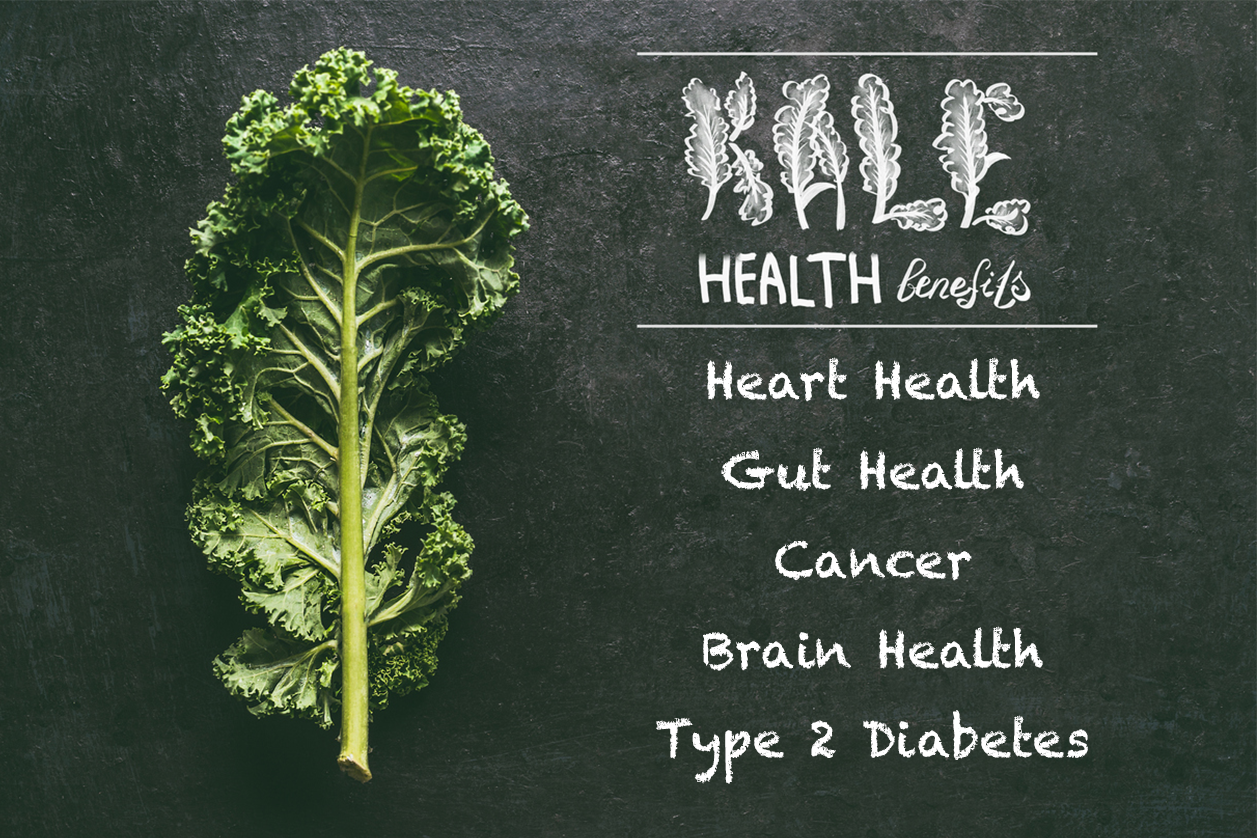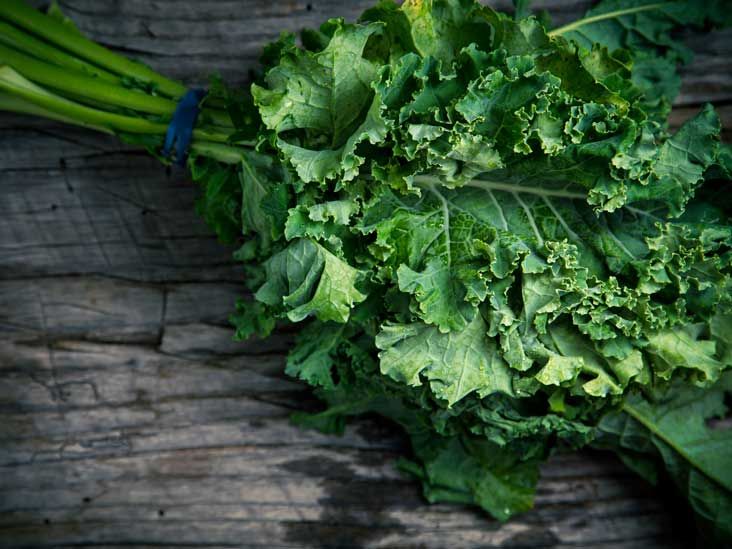Your trusted source for simple, practical nutrition advice and tips for a healthier lifestyle.
Kale offers numerous health benefits, including high nutrient density and powerful antioxidant properties. It supports heart health and boosts the immune system.
Kale, a leafy green superfood, has gained popularity for its impressive nutritional profile. Packed with vitamins A, C, and K, it provides essential nutrients that support overall health. This cruciferous vegetable is also rich in antioxidants, which help combat oxidative stress and inflammation.
High fiber content in kale aids digestion and promotes a healthy gut. Its low calorie but high nutrient content makes it an excellent choice for weight management. Incorporating kale into your diet can enhance your well-being and contribute to a balanced, nutritious lifestyle. Whether in salads, smoothies, or cooked dishes, kale is a versatile and valuable addition to your meals.

Credit: www.pinterest.com
Nutrient Powerhouse
Kale is one of the healthiest vegetables on the planet. Its dense nutrient content makes it a nutrient powerhouse. Eating kale offers numerous health benefits. Let’s dive into why this leafy green is so special.
Vitamins And Minerals
Kale is packed with essential vitamins and minerals. Below is a table showcasing some of its key nutrients:
| Nutrient | Amount per 100g | % Daily Value |
|---|---|---|
| Vitamin A | 4812 IU | 96% |
| Vitamin C | 120 mg | 200% |
| Vitamin K | 704.8 mcg | 882% |
| Calcium | 150 mg | 15% |
| Iron | 1.5 mg | 8% |
These vitamins and minerals support immune function, bone health, and blood clotting.
Antioxidant Rich
Kale is rich in powerful antioxidants. These antioxidants help fight free radicals in the body.
- Quercetin and kaempferol are two key antioxidants in kale.
- They reduce inflammation and lower blood pressure.
- Antioxidants protect cells from damage and prevent chronic diseases.
Eating kale regularly can help improve overall health. Its antioxidant properties make it a valuable addition to any diet.
Boosts Immunity
Eating kale can significantly boost your immune system. This leafy green contains essential nutrients that help your body fight off illnesses. Let’s explore how kale enhances your immunity.
Immune-enhancing Compounds
Kale is packed with immune-enhancing compounds. These include vitamins, minerals, and antioxidants.
- Vitamin C: Helps to increase white blood cells.
- Vitamin A: Supports the function of immune cells.
- Vitamin K: Aids in blood clotting and bone health.
- Antioxidants: Protect cells from damage.
Cold And Flu Prevention
Regularly eating kale may help in cold and flu prevention. The nutrients in kale strengthen your immune system.
- Vitamin C in kale boosts your body’s defense against colds.
- Vitamin A helps maintain healthy mucous membranes.
- Antioxidants reduce the risk of infections.
Incorporating kale into your diet can keep you healthier throughout the year.
Supports Heart Health
Kale is a powerful leafy green vegetable. It is known for its numerous health benefits. One of its key benefits is supporting heart health. This section explores how kale aids in maintaining a healthy heart. We will focus on cholesterol reduction and blood pressure control.
Cholesterol Reduction
Kale helps in reducing cholesterol levels. It contains bile acid sequestrants which lower cholesterol. These compounds bind with bile acids in the digestive system. This process forces the liver to use more cholesterol to produce bile acids. As a result, cholesterol levels in the blood decrease.
Adding kale to your diet can help manage cholesterol. It is an excellent way to support heart health.
Blood Pressure Control
Kale is rich in potassium. Potassium helps control blood pressure by balancing out the negative effects of sodium. A diet high in potassium can help reduce blood pressure. This is crucial for maintaining a healthy heart.
Below is a table showing the potassium content in kale compared to other vegetables:
| Vegetable | Potassium Content (mg per 100g) |
|---|---|
| Kale | 491 |
| Spinach | 558 |
| Broccoli | 316 |
Including kale in your meals can help maintain healthy blood pressure levels. This contributes to overall heart health.
Aids Digestion
Kale is a superfood that greatly aids digestion. Its high fiber content and digestive enzymes make it an essential part of a healthy diet.
Fiber Content
Kale is packed with dietary fiber. Fiber is crucial for a healthy digestive system. It helps move food through the digestive tract. This prevents constipation and promotes regular bowel movements.
Here is a table that shows the fiber content in kale:
| Type of Kale | Fiber Content (per 100g) |
|---|---|
| Raw Kale | 2g |
| Cooked Kale | 3g |
Digestive Enzymes
Kale contains digestive enzymes that break down food efficiently. These enzymes help your body absorb nutrients better. This means you get more vitamins and minerals from your food.
Here are some important digestive enzymes found in kale:
- Amylase – Breaks down carbohydrates
- Protease – Helps digest proteins
- Lipase – Aids in fat digestion
Eating kale can make digestion easier. It can help reduce bloating and gas. This makes you feel more comfortable after meals.
Promotes Weight Loss
Eating kale can help with weight loss. This superfood is low in calories but high in nutrients. It helps you feel full longer, reducing the urge to snack. Let’s dive into how kale promotes weight loss.
Low-calorie Food
Kale is a low-calorie food. One cup of raw kale has only 33 calories. This means you can eat a lot of it without gaining weight. It also has lots of water and fiber. This helps you stay hydrated and full.
Satiety And Fullness
Kale helps with satiety and fullness. The fiber in kale slows down digestion. This makes you feel full longer. When you feel full, you are less likely to overeat. Kale also has protein, which helps build muscles. Muscles burn more calories than fat, helping you lose weight.
| Benefits | Description |
|---|---|
| Low-Calorie | Only 33 calories per cup |
| High Fiber | Helps you feel full |
| Hydrating | Lots of water content |
These benefits make kale a great food for weight loss. Eating kale can help you achieve your weight goals.
Improves Bone Health
Eating kale can greatly improve your bone health. Kale is packed with essential nutrients that support strong bones and prevent diseases like osteoporosis.
Calcium Source
Kale is an excellent source of calcium. Calcium is vital for bone health. A cup of kale contains about 100 milligrams of calcium. This helps maintain bone density and strength. It is a great option for those who do not consume dairy.
Vitamin K Benefits
Vitamin K is another nutrient found in abundance in kale. It plays a crucial role in bone health. Vitamin K helps in the formation of proteins needed for bone mineralization. This reduces the risk of fractures. Just one cup of kale provides over 500% of the daily recommended intake of Vitamin K.
| Nutrient | Amount per Cup | Daily Value (%) |
|---|---|---|
| Calcium | 100 mg | 10% |
| Vitamin K | 500 mcg | 500% |
Including kale in your diet can help improve your overall bone health. It is a simple and effective way to ensure you get essential nutrients.
Enhances Skin And Hair
Eating kale can greatly benefit your skin and hair. It’s packed with vitamins and minerals. These nutrients help improve your skin and hair health. Let’s explore how kale enhances your beauty.
Collagen Production
Kale is rich in vitamin C. This vitamin is essential for collagen production. Collagen keeps your skin firm and smooth. It also helps reduce wrinkles. Eating kale boosts your collagen levels naturally.
Hydration And Elasticity
Kale contains omega-3 fatty acids. These fats keep your skin hydrated. Hydrated skin looks healthy and glowing. Kale also improves skin elasticity. This means your skin can stretch and bounce back easily.
Here is a table summarizing the benefits:
| Benefit | Details |
|---|---|
| Collagen Production | Rich in vitamin C, helps reduce wrinkles. |
| Hydration | Contains omega-3 fatty acids, keeps skin hydrated. |
| Elasticity | Improves skin’s ability to stretch and bounce back. |
By adding kale to your diet, you can enjoy these benefits. Your skin and hair will look better and feel healthier. Try including kale in your meals today!

Credit: foodrevolution.org
Detoxification Benefits
Eating kale offers numerous detoxification benefits. Kale helps cleanse the body and support overall health. This leafy green is packed with nutrients that aid in detoxification.
Liver Function Support
Kale is rich in glucosinolates. These compounds help the liver process toxins. They convert toxins into harmless substances that the body can eliminate. This supports healthy liver function.
Here is a quick overview of how kale supports liver function:
| Nutrient | Benefit |
|---|---|
| Glucosinolates | Help the liver detoxify harmful substances |
| Antioxidants | Protect liver cells from damage |
| Fiber | Aids in the elimination of waste |
Toxin Elimination
Kale contains fiber. Fiber helps the body eliminate toxins efficiently. It binds with waste products in the digestive tract. This ensures they are removed from the body. Kale also has antioxidants like vitamin C and beta-carotene.
These antioxidants neutralize free radicals. This prevents cell damage and supports detoxification. Here are some key points about kale and toxin elimination:
- Fiber: Promotes bowel regularity and toxin removal.
- Antioxidants: Protect cells from oxidative damage.
- Water Content: Helps flush out toxins through urine.
Consuming kale regularly can significantly improve detoxification processes in your body.

Credit: www.healthline.com
Frequently Asked Questions
What Are The Main Benefits Of Eating Kale?
Kale is rich in vitamins A, C, and K. It is high in antioxidants. It supports heart health and aids digestion. It also helps in weight management.
Is Kale Good For Weight Loss?
Yes, kale is low in calories and high in fiber. It keeps you full longer, helping in weight management.
How Does Kale Improve Heart Health?
Kale contains potassium, which helps regulate blood pressure. Its fiber content lowers cholesterol levels, promoting heart health.
Can Kale Boost Your Immune System?
Yes, kale is high in vitamin C and antioxidants. These nutrients strengthen the immune system and fight off infections.
Conclusion
Kale offers numerous health benefits, from boosting immunity to improving digestion. It’s rich in vitamins, antioxidants, and fiber. Adding kale to your diet can enhance your overall well-being. Enjoy kale in salads, smoothies, or cooked dishes for a nutritious boost.
Make kale a staple in your healthy eating plan.





